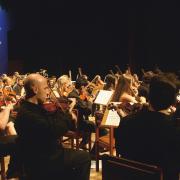
As I sit down to revise intensely for my final week of exams, it is safe to say that I have learnt a lot about studying and organisation over the past ten weeks.
Let me fill you in: a few days before the start of my mock GCSEs in January, the education secretary, Gavin Williams said ‘I can confirm that GCSE, A Level and AS Level exams will not go ahead this summer’. Life went on, I did a bit of online school, then we moved back to in-person school, and then… BOOM I suddenly had exams in two weeks that would count towards my GCSE grade. We were then informed that we were going to have three sets of ‘mini-assessments’ over the course of eleven weeks all of which we would have minimal time to revise for. This triggered my fight-or-flight and I frantically accumulated notes, past papers and Quizlets (more on that later) to prepare for these impending sets of exams. Apart from hard work and learning how to adapt to abnormal circumstances, intense organisation was one of the skills that helped me survive these exams. Here are some of the apps that have aided my revision and saved my sanity.
Quizlet
Quizlet was a website that I initially used for my languages, but as I became more ambitious, I branched out to the humanities. I would describe Quizlet as a site for virtual flashcards and study notes, but it’s fun. Studying three languages (French, Latin and Greek), there was a lot of vocabulary that had to be learnt. Some of my Quizlets amassed from 400 to 600 terms, which was overwhelming, but Quizlet is actually quite pleasurable. You don’t just have to do endless flashcards, there’s a myriad of different ways of studying: for visual learners, there’s the learn and write modes (simply writing out the answers), for more auditory learners, the spell mode (recites your notes and you have to write down your answer) and for the playful learners, there’s the game called Gravity and to make it even more motivating, there’s a leaderboard! In fact, I just got an email from Quizlet saying that I am now on an eleven week study streak, so clearly, my loyalty to Quizlet is definitive.
Pomodoro
The Pomodoro Technique was developed by Francesco Cirillo, who used a tomato-shaped kitchen timer, as a university student, to complete assignments. According to Cirillio, and science, it is a more productive way to work and study, where the timer breaks down the work into 25 minute work periods, and 5 minute intervals between to reset the brain. Freya Sutaria, a proud adopter of the Pomodoro Technique, says it has enabled her ‘to work more efficiently and for more sustained periods’. Pomofocus.io is the website I use, mostly because I like the aesthetic and the tick list, but even the Google timer will do. I would really recommend this app if you faff a lot because it gives you a short term deadline, and the consequence of not completing it, is feeling like a failure...you don’t want to do that!
Notion
Notion is an app where you can organise literally anything in your life in any way that you wish, or as they like to say, it’s a ‘new tool that blends your everyday work apps into one’. The list is endless; from resume templates, to reading lists, to the Cornell Notes System, to class notes and so much more. For my exams, I created ‘Assessment Overview’ pages, where all my subjects were in one place, as well as what we were going to be assessed on, the date and any other extra links to related pages or notes. Then I made my ‘work space’, which was a place where I would go full screen to do all my work, devoid of distractions. Embedded in the page was the Pomodoro Timer, the periodic table, a quick note callout and my study playlist (‘Chilled Jazz’ by Spotify - it works wonders). The final page I used was my extensive and detailed to-do list. In total, it was about 250 different tasks, from making notes, to learning notes, to practice papers, to Quizlets, all of which were coloured coded, of course.
Revision techniques are so personal, so take this how you wish, but I think the most important method of revision (that should apply to everyone) for the future, is going paperless. Not only are there thousands of different revision apps and websites, but they are free and will save so much paper compared to endless flashcards and stacks of notes. Whilst we should work sustainably, we must also, as Cirillo says, ‘work smarter’.



























